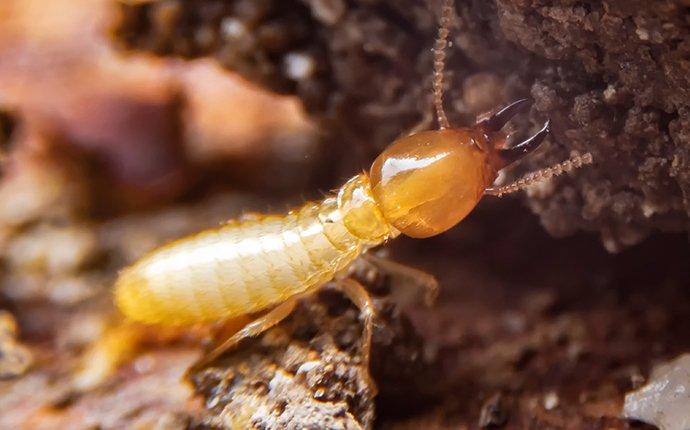Professional Ant Control Services: Customized Therapies for Enduring Results
Ecological Influence of Parasite Control: Balancing Performance With Sustainability
The environmental effect of parasite control is an important problem that requires a delicate balance between accomplishing performance in managing bugs and ensuring sustainability of our ecological communities. From the use of dangerous chemicals that permeate right into our dirt and water to the unplanned consequences on non-target species, the consequences of traditional insect control methods are significant.
Unsafe Chemicals in Pest Control
The utilization of unsafe chemicals in parasite control positions considerable environmental and health and wellness dangers that require careful consideration and mitigation techniques. Pesticides, chemicals, and herbicides are frequently utilized to remove pests, however their extensive application can result in unintentional repercussions. These chemicals can pollute dirt, water sources, and the air, affecting not only the targeted bugs however also useful insects, wildlife, and humans.

To address these risks, incorporated insect administration (IPM) strategies are being advertised as a more lasting alternative. IPM entails a combination of techniques such as biological control, habitat adjustment, and the targeted usage of chemicals as a last resource (ant control salisbury nc). By embracing a holistic technique to pest control, we can reduce the ecological and health and wellness influences related to hazardous chemicals while properly taking care of pest populations
Influence on Non-Target Variety
Considering the unexpected effects of parasite control methods, the effect on non-target species is a vital element that calls for extensive assessment. While pest control actions aim to target particular insects, other organisms in the ecological community may be accidentally impacted. Non-target species, including beneficial insects, birds, creatures, and also plants, can experience straight or indirect injury from chemical applications or biological control approaches.
Pesticides designed to deal with a particular bug parasite may harm pollinators like or natural predators such as ladybugs. Biological control representatives, if not species-specific, can posture dangers to unplanned targets, interrupting the eco-friendly equilibrium.
To minimize the effect on non-target varieties, incorporated bug management (IPM) strategies that emphasize an alternative technique to pest control are advised. These techniques focus on the usage of eco-friendly methods, lessening injury to advantageous microorganisms while successfully managing pest populations. Conducting comprehensive danger evaluations and monitoring the outcomes of pest control initiatives are crucial actions in guarding non-target types and promoting general ecological community health.
Soil and Water Contamination
Unexpected ecological effects of parasite control methods prolong beyond impacting non-target varieties, with considerable implications for dirt and water contamination. Pesticides, herbicides, and chemical plant foods used in parasite control can seep into the soil and contaminate groundwater, posing a risk to both water and terrestrial communities. Dirt contamination can interfere with the equilibrium of bacteria crucial for vitamins and mineral biking and plant development, causing lowered soil fertility and efficiency. These chemicals can persist in the environment for extended periods, gathering in the soil and potentially entering the food chain.
Water contamination is one more crucial problem connected with insect control techniques. To alleviate dirt and water contamination from insect control tasks, integrated pest management strategies that focus on sustainability and lessen chemical inputs are important.
Air Air Pollution From Pesticide Use
Direct exposure to air-borne pesticides during agricultural applications positions a significant concern for air pollution control procedures. Additionally, pesticide drift, where chemicals are carried by the wind to unexpected areas, can lead to the contamination of neighboring communities and water bodies.

Methods for Lasting Pest Control
In the realm of farming techniques, implementing sustainable insect control approaches is paramount for maintaining ecological equilibrium and securing plant returns. Lasting pest control emphasizes using environmentally friendly methods to handle parasite populaces effectively while reducing damage to non-target organisms and ecological communities. Integrated Pest Management (IPM) is a widely adopted approach that combines biological, cultural, physical, and chemical control methods to achieve long-term pest monitoring solutions.
Plant rotation and diversity are likewise efficient techniques to interfere with pest life cycles and create official statement less positive problems for bugs to flourish. Inevitably, by incorporating these sustainable parasite control approaches, farmers can attain a balance between pest management effectiveness and ecological stewardship.
Final Thought
To conclude, the ecological effect of bug control approaches need to be very carefully thought about to balance effectiveness with sustainability. Damaging chemicals made use of in insect control can bring about dirt and water contamination, air pollution, and damage non-target types - ant control services. It is important to execute lasting bug control approaches to minimize these adverse impacts on the environment and promote a healthier community for future generations
By adopting a holistic approach to pest control, we can reduce the environmental and health and wellness influences connected with unsafe chemicals while properly managing pest populations.

To mitigate the air pollution caused by pesticide use, it is vital to adopt integrated bug management techniques that focus on the use of non-chemical bug control techniques, such as crop rotation, all-natural killers, and immune crop ranges. Sustainable parasite control emphasizes the usage of environmentally friendly approaches to manage insect populaces effectively while minimizing harm to non-target microorganisms and ecosystems. Integrated Insect Monitoring (IPM) is a widely taken on approach that integrates organic, social, physical, and chemical control methods to achieve long-lasting bug monitoring remedies.